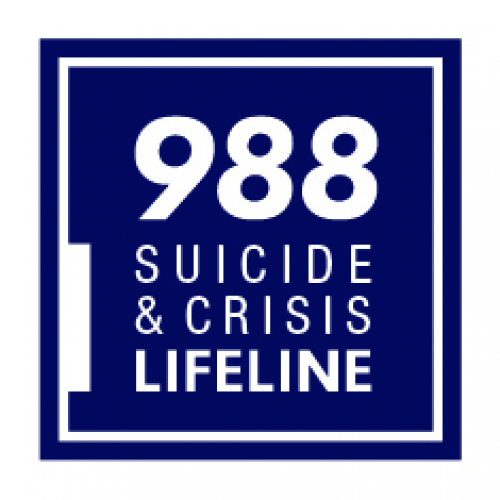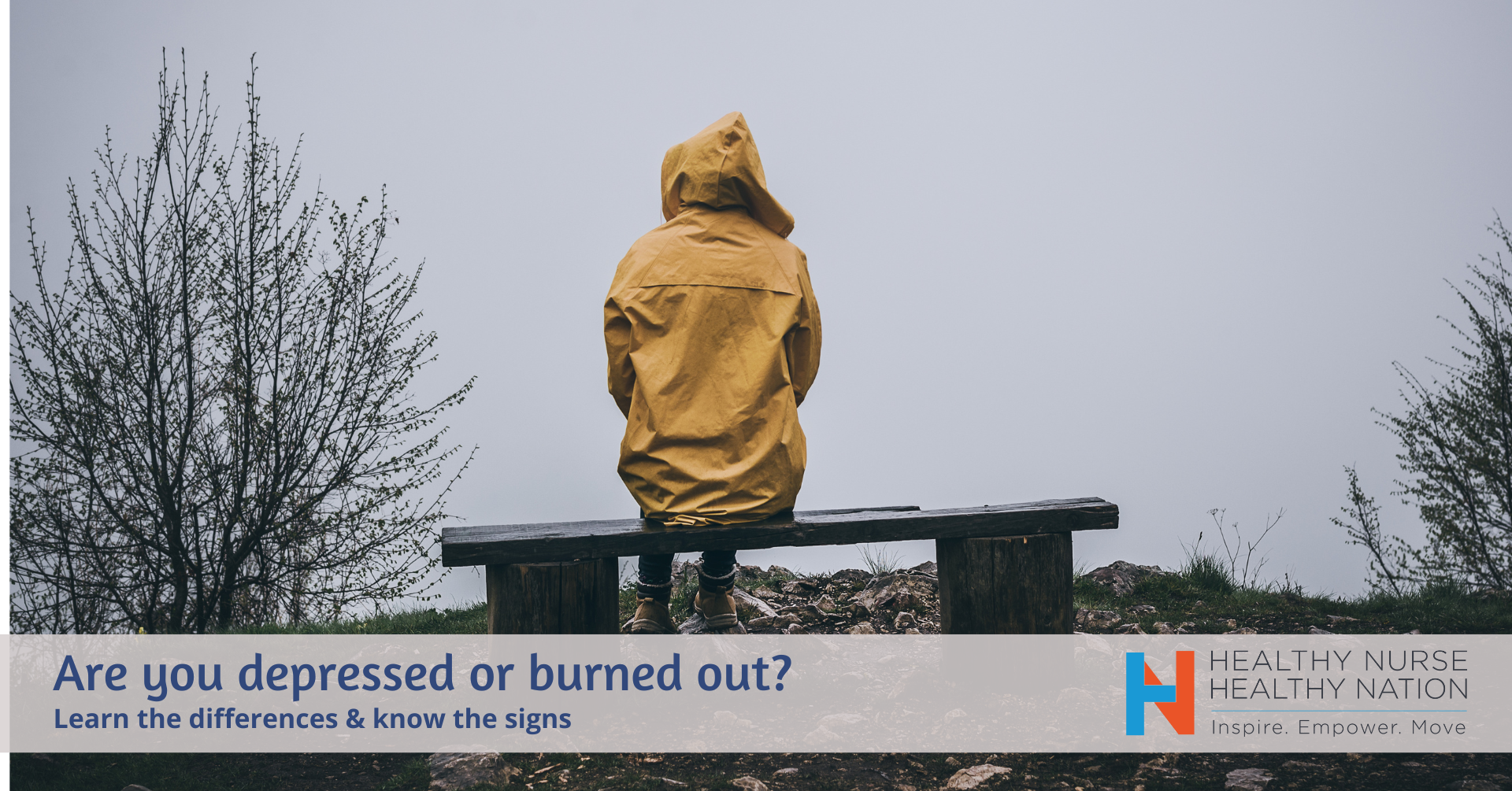Are You Depressed Or Burned Out? Know The Signs & Learn The Differences
Published
Nurses often work in high-stress environments and deal with life and death situations. This makes us almost twice as likely to experience depression as people in other professions. That's why it is important understand the signs and know how to get help. The good news is that since we’re in the health care industry, we have access to the treatment and support needed to recover.
Depression vs. Burnout
“People talk about depression and burnout as if they’re interchangeable, but they’re not,” says Karen Anderson, Clinical Nurse Specialist for Patient and Family Centered Care at the Hospital of The University of Pennsylvania.
- Depression is a psychiatric illness with clear symptoms that are outlined in the Diagnostic Statistical Manual of Mental Disorders (DSM-5).
- Burnout is focused on your work experience, while depression is something that you will feel in all areas of your life.
- Compassion fatigue is a type of burnout that impacts the emotional connection nurses have with their patients and causes them to disengage.
Recognize the signs
Although the symptoms of depression are not always visible, there are traits to look for, such as:
- Sleep disturbance
- Changes in appetite
- Feeling hopeless
- Irritability
- Feeling less engaged in activities you used to enjoy
- Feeling isolated
- Not finding joy in life
- Bringing less energy to work and with patients
How to help a coworker
Nurses often know their colleagues well because they spend so much time together. If you recognize the symptoms of depression in a fellow nurse, it’s important to talk to the person about it.
Timing and place are important. “You want to prep the person and set up the conversation so it’s not a surprise to them,” says Anderson. “You don't want it to be a defensive conversation.” You may want to ask the person to lunch or to go for coffee after a shift. Let them know you want to talk to them about an issue that has been concerning you.
Present your concern in a non-defensive way and explain that you care. For example, you may say, “You used to be someone I could always turn to for help, but lately you've felt further away and harder to access. I know you're out sick a lot. I'm worried about you. Can you talk to me about what's going on?”
How to get help
Nurses are fortunate in that we generally have employee assistance programs with mental health components. Work benefits may also offer easy access to mental health treatment. Talk to a psychiatrist, psychologist, a psychiatric nurse practitioner, or advanced practice nurse.
You can also go to your primary care provider and talk with them about what level of mental health support you need.

If your stress or depression causes you to think about suicide or be in crisis, there is help available.
You are not alone. If you or someone you know is struggling or in crisis, call/text 988 or chat at 988lifeline.org to connect to the 988 Suicide & Crisis Lifeline
What treatment looks like
Treatment for depression usually consists of therapy, medication, or a combination of both.
- Cognitive behavioral therapy is a talk therapy that focuses on how you think. If a nurse says that she’s no longer good at her job and her patients dislike her, the therapist can hear those cognitive distortions and help the person to examine them. This type of therapy helps the patient to become aware of inaccurate or negative thoughts and respond to them more effectively.
- Therapeutic interventions are aimed at helping someone figure out where they went astray and how to re-engage in good mental health. “We know exercise is a positive behavior that helps people who are depressed,” says Anderson. “If someone used to walk regularly, and they're not anymore, the therapist will help them to re-engage in healthy activities and relationships.”
- Medication management can also be very effective, especially when coupled with therapy. An advanced practice psych nurse or a psychiatrist will do an in-depth assessment before prescribing a medication.
With the combination of therapy and medication, a person could start to see changes within four to six weeks. Within three months, a significant improvement should be noticeable.
Many people stop therapy when they’ve been feeling better for a while, but they can always go back to it. If a person has a crisis or is facing a challenging situation, they may want to reconnect with a therapist for a few sessions to make sure they’re not going to relapse into depression.
Secondary Traumatic Stress
Many nurses can become traumatized by unanticipated events (which is known as Secondary Traumatic Stress), such as a patient’s death or a medical error. “It's important for nurses to get support at those times,” says Anderson. “If they don't and they're experiencing work-related chronic stress, that erodes their mental health and can lead to depression, too.”
Removing the stigma
Employers and organizations need to create an environment that decreases stigma and values staff discussion about what happens to them at work, especially if they've witnessed or experienced a traumatic event. Anderson adds, “We need an organizational culture that says, ‘we know this happens to you and we don't want you to be traumatized by it. We want you to get help.’”
Know a nurse you want to share this article with? Share it on Facebook, Twitter, and Instagram by clicking on the links on the left side of the page.
Updated 5/10/22
Additional resources:
- ANA's Nurse Suicide Prevention/Resilience webpages
- The Well-Being Initiative featuring free tools and apps to support the mental health and resilience of all nurses

Have you joined Healthy Nurse, Healthy Nation (HNHN) yet? Join us today!
Source List:
CDC. Mental Health Conditions: Depression and Anxiety.
Levtak, S. A., Ruhm, C. J., & Gupta, S. N. (2012). Nurses’ presenteeism and its effects on self- reported quality of care and costs. American Journal of Nursing, 112, 30-38.
Blog Mental Health
06/05/2017 8:36am CDT


Post a Comment or Question
Depression can lead to Drug Addiction in most of the cases one can not recognize his/her attraction towards drugs in terms of relaxants. I have a good read that might help someone
in recognizing their addictions. So they can stop it earlier before its late.